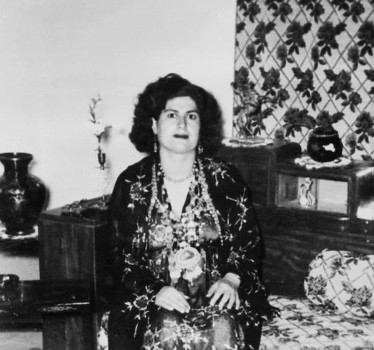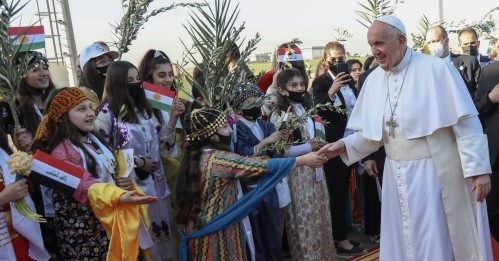Widely seen as the beacon of hope in a volatile region, the Kurdistan Region keeps dreaming big for a brighter future. Its leadership embraces learning from others’ success stories without merely copying them. To understand better what that might entail, it is useful to look at the engagement of a high-level Kurdish delegation during the three-day World Governments Summit in Dubai.
Held annually in February, the summit brings together governments, international organizations, thought leaders, and private sector leaders from around the globe to foster international cooperation and identify innovative solutions for future challenges, ultimately inspiring and empowering the next generation of governments. The 2025 event convened under the theme Shaping Future Governments.
On February 10, Kurdistan Regional Government (KRG) Prime Minister Masrour Barzani arrived in Dubai. Accompanied by a high-level delegation, the Kurdish leader focused on strengthening diplomatic and economic ties between the Kurdistan Region and participating countries, exploring new opportunities for cooperation in trade, investment, economics, and addressing key regional and international developments.
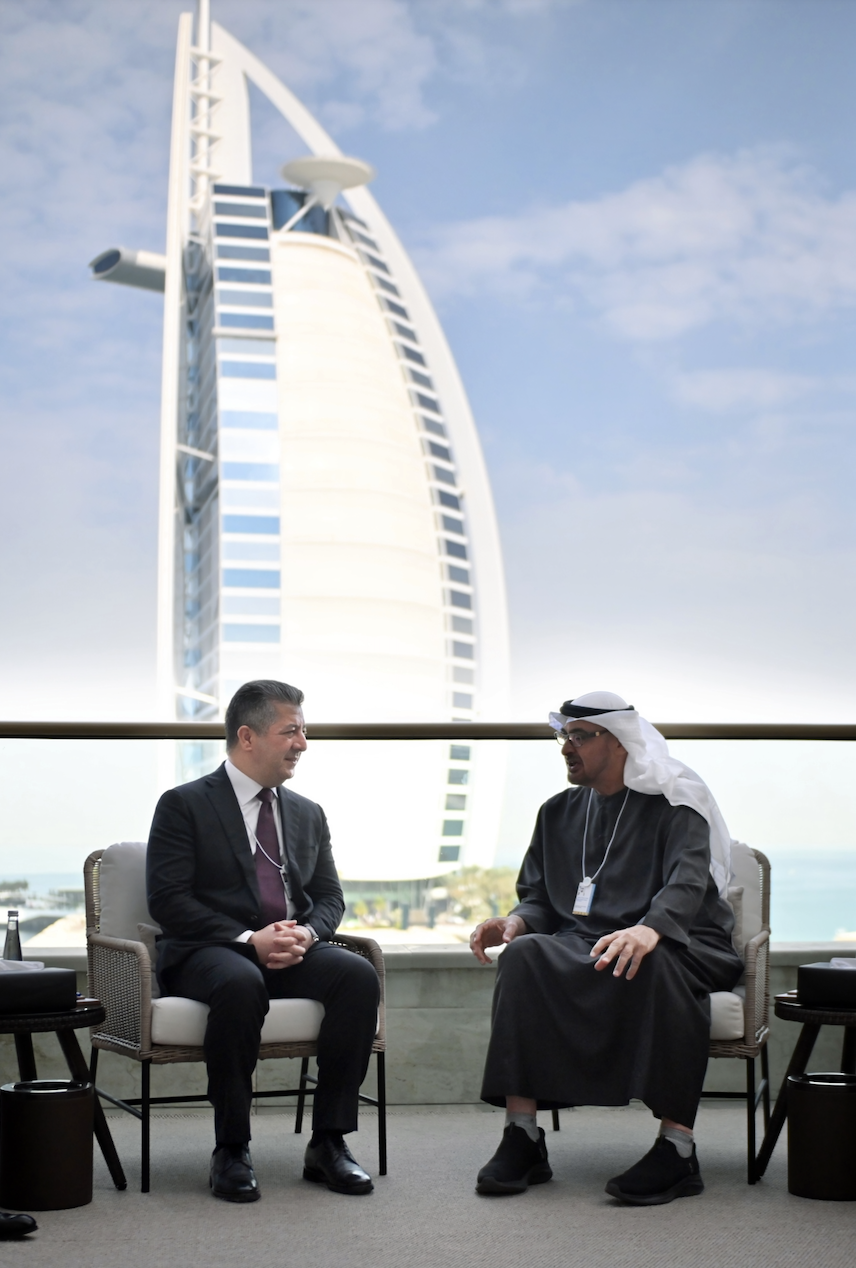
Learning from each other
Through his participation at the World Governments Summit, Prime Minister Barzani intended to demonstrate his government’s commitment to international engagement and to reinforce the Kurdistan Region’s position as a key and reliable partner on the global stage, as reported by the Prime Minister’s Office.
As part of the summit’s program, the Kurdish leader participated in a special panel discussion titled “Navigating Challenges, Embracing Opportunities,” emphasizing the importance of international cooperation and the exchange of successful experiences between countries to address common challenges and achieve sustainable development.
Prime Minister Barzani also reiterated how the Kurdistan Region’s security and stability have played a crucial role in attracting investment and driving economic growth. He emphasized the government’s ongoing efforts to diversify revenue sources and boost the private sector to create job opportunities for young people and reduce over-reliance on public sector employment.
“In order to create jobs, you always need to look at the middle class, you always need to look at the entrepreneurs because these are the people who are providing the greatest number of jobs for those who are looking to work. I don’t intend to make the government the only platform to create employees. The private sector can, in fact, help the government reduce the size of the public sector,” Prime Minister Barzani told the panel moderated by Abdulla Lootah, Director-General of the UAE’s Federal Competitiveness and Statistics Authority.
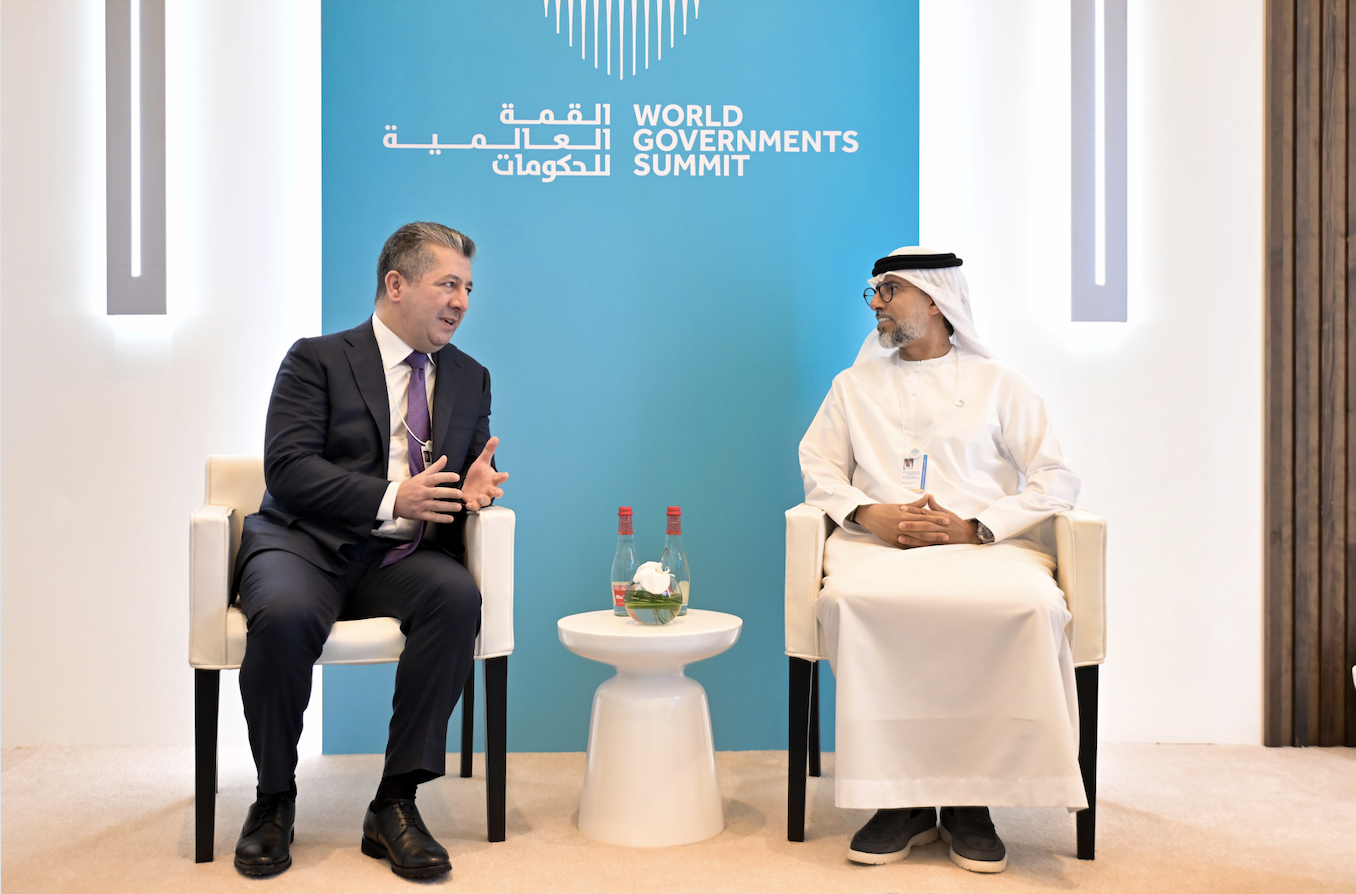
Digitization
Regarding digital governance, Prime Minister Barzani underscored that the KRG is committed to digitizing public services to improve transparency, combat corruption, and streamline administrative procedures, ensuring better services for citizens.
“We have a very aggressive reform program for digitalizing our systems, whether it’s public services, the economy, financial institutions, business-to-business commerce, or tradition small businesses,” he stressed. “We are looking at how best we can create systems where citizens can easily deal with life’s daily tasks and obtain the services they need, even in their interactions with the government, without having to go through cumbersome bureaucratic procedures.”

Prime Minister Barzani also emphasized the importance of building a resilient and flexible economy that can adapt to global changes. In this goal, diversifying the Kurdistan Region’s revenue sources and enhancing the private sector are key pillars of the KRG’s long-term economic strategy.
Addressing the Erbil-Baghdad relations, Prime Minister Barzani stated that the KRG is committed to resolving political disputes with the federal government. He reiterated that dialogue and negotiations are the best options for achieving stability and prosperity in Iraq.
Reflecting on the future of the Kurdistan Region, he reaffirmed that despite challenges, the Kurdistan Region remains on a path of progress and prosperity.
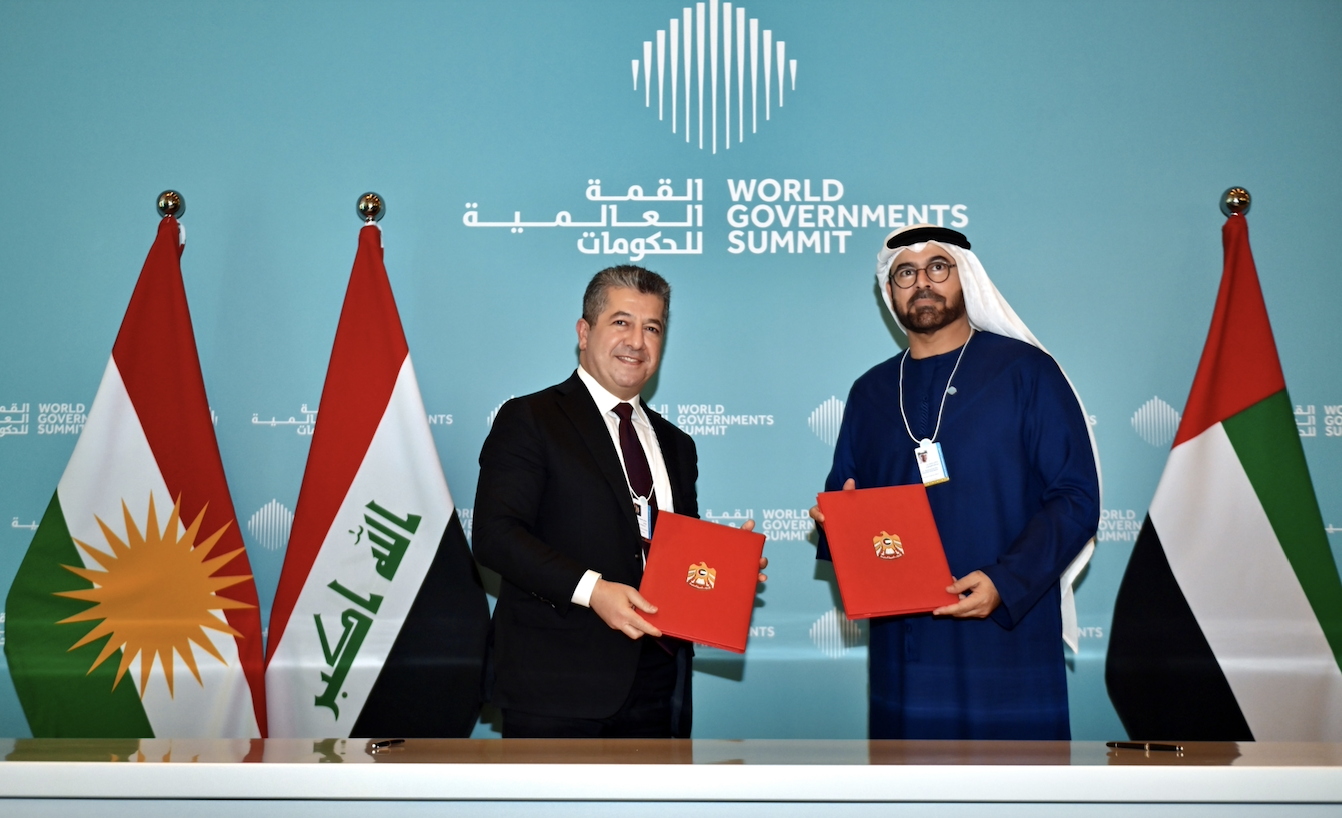
Relations with the UAE
While in Dubai, Prime Minister Barzani was also welcomed by Mohammed bin Zayed Al Nahyan, President of the UAE. According to the official readout of the meeting, both sides emphasized the importance of strengthening bilateral cooperation and further enhancing friendly KRG-UAE relations across various sectors.
The Kurdish leader later also met with other UAE leaders and regional political figures, including Hamdan bin Mohammed bin Rashid Al Maktoum who serves as the Crown Prince of Dubai, the UAE Deputy Prime Minister, and the Minister of Defense. Prime Minister Barzani also met with the health, investment, and interior ministers, as well as the Secretary General of the Gulf Cooperation Council and the President of the European Bank for Reconstruction and Development.
Before his departure, Prime Minister Barzani also joined the UAE Minister of Cabinet Affairs Mohammad Al Gergawi to oversee the signing of a memorandum of understanding (MoU) between the KRG and the UAE.

The KRG said in a statement following the ceremony that the MoU aims to enhance cooperation through knowledge exchange and governance modernization. The agreement builds upon an existing MoU between the two sides, which is now extended for another five years. It focuses on sharing expertise in governance, leveraging the UAE’s advanced experience to improve government affairs, strengthening institutions, and developing human capacity.
“I’m pleased to announce that today at the World Governments Summit 2025 with His Excellency
Mohammad Al Gergawi, we renewed the MoU between the Kurdistan Region and the UAE for another five years, to apply their expertise in reform, public sector, and human resource development,” Prime Minister Barzani said after the signing ceremony.
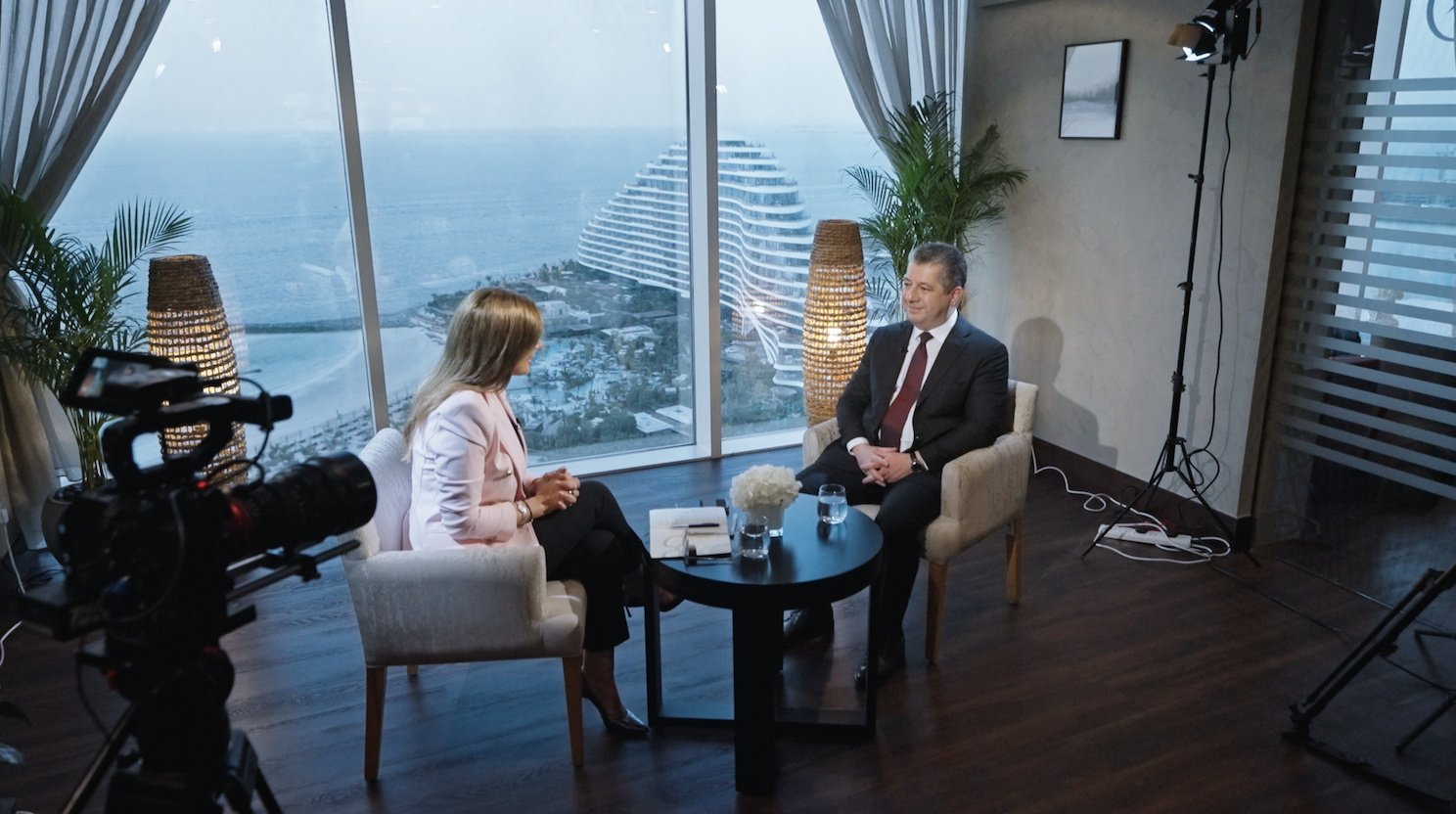
Sardar Sattar is a translator and journalist based in the Kurdistan Region. He has an MA in English Studies from the University of Lodz, Poland. He has translated several books and political literature into Kurdish and English. He writes regularly for local and international newspapers and journals.
